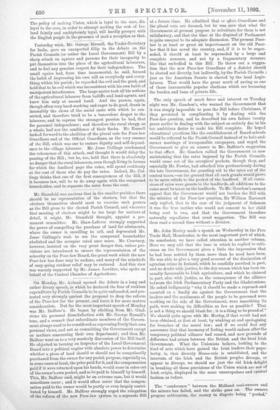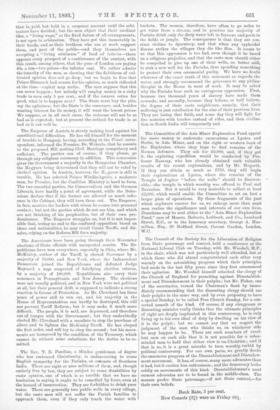The " conference " between the Midland coal-owners and the
miners has failed, and the strike goes on. The owners propose arbitration, the -money in dispute being "pooled," that is, paid, but held in a suspense account until the arbi- trators have decided; but the men object that their cardinal idea, a "living wage," as the fixed datum of all arrangements, is not open to arbitration. They have got this immovably in their heads, and as their brethren who are at work support them, and part of the public—and they themselves are accepting a "living minimum" of food ad interim—there appears every prospect of a continuance of the contest, with this result, among others, that the poor of London are paying 40s. a ton—two prices—for inferior coal. We rather admire the tenacity of the men, as showing that the flabbiness of cul- tivated opinion does not go deep; but we begin to fear that Prince Bismarck had reason for his opinion, so much ridiculed at the time—capital may strike. The men suppose that this can never happen ; but nobody will employ money in a risky trade to earn only 5 per cent., and if the owners retire for good, what is to happen next ? The State must buy the pits, say the agitators; but the State is the consumer, and, besides wanting interest for its money, it will want the lowest prices. We suppose, as in all such cases, the outcome will not be so bad as is expected ; but at present the outlook for trade is as bad as it can well be.







































 Previous page
Previous page